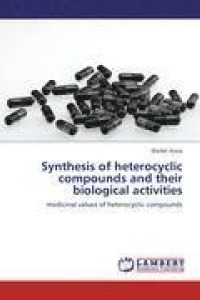
Liknande böcker
Coumarin Synthesis, Reactions and Pharmacological Activities
Bok av Al-Amiery Ahmed
Coumarins represent one of the most active classes of compound possessing a wide spectrum of biological activity such as anti-HIV, anticoagulant, antimicrobial, antioxidant, and anti-inflammatory, agents. Although most of the existing natural coumarins have been isolated from higher plants, some of them have been discovered in microorganisms, for example, aminocoumarin antibiotics: novobiocin, coumermycin A1, and chlorobiocin (produced by the actinomycete Streptomyces niveus). Coumarins can be synthesized by the Perkin reaction, Pechmann reaction or by Knoevenagel condensation and recently, by Wittig reaction. Synthetic coumarins have been obtained by chemical modification of the coumarin ring.







